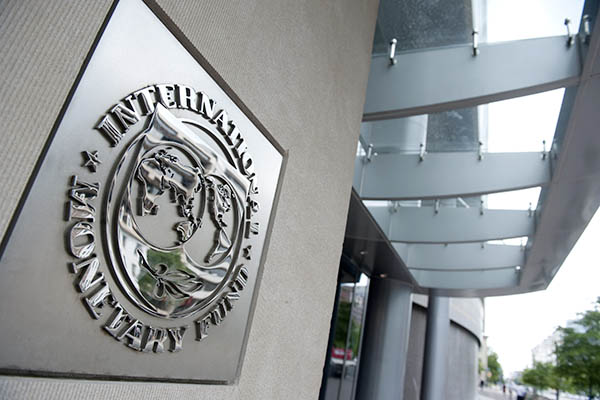
Saul Loeb—AFP
The International Monetary Fund (IMF) late on Wednesday announced it had concluded staff-level talks with the Government of Pakistan, stressing that “deviations from the policies agreed in the last review, including in the context of removing fuel and energy subsidies” were needed to achieve the suspended program’s objectives.
The discussions between Pakistan and the global lender took place from May 18-25 in Doha, Qatar. According to the IMF, they deliberated on policies to secure macroeconomic stability and support sustainable growth in Pakistan. “The mission has held highly constructive discussions with the Pakistani authorities aimed at reaching an agreement on policies and reforms that would lead to the conclusion of the pending seventh review of the authorities’ reform program, which is supported by an IMF Extended Fund Facility arrangement,” read a statement issued by IMF mission head Nathan Porter.
“Considerable progress was made during the mission, including on the need to continue to address high inflation and the elevated fiscal and current account deficits, while ensuring adequate protection for the most vulnerable,” it said. “In this regard, the further increase in policy rates implemented on May 23 was a welcome step. On the fiscal side, there have been deviations from the policies agreed in the last review, partly reflecting the fuel and power subsidies announced by the authorities in February. The team emphasized the urgency of concrete policy actions, including in the context of removing fuel and energy subsidies and the FY2023 budget, to achieve program objectives,” it stressed.
“The IMF team looks forward to continuing its dialogue and close engagement with Pakistan’s government on policies to ensure macroeconomic stability for the benefit all of Pakistan’s citizens,” it added.
In a series of Twitter posts on Thursday morning, Finance Minister MIftah Ismail claimed that the Pakistani delegation had “very useful and constructive discussions with the IMF team” in Doha. “We discussed significant slippages in FY2022, caused in part by the fuel subsidies given in February 2022,” he said. “We discussed targets for FY23, where, in light of high inflation, declining forex reserves and a large current account deficit, we would need to have a tight monetary policy and consolidate our fiscal position. Thus government is committed to reducing the budget deficit in FY23,” he said.
“The IMF team emphasized the importance of rolling back fuel and power subsidies, which were given by the previous administration in contravention of its own agreement with the Fund. Government is committed to reviving the IMF program and put Pakistan back on a sustainable growth path,” he added.
Despite the demands from the IMF, the coalition government has repeatedly stressed that it would not raise fuel prices, as it does not want to burden the public under further inflation. However, it has become clear that without this “harsh” decision, the country’s economy cannot hope to recover.
The inability of the government and the IMF to agree on the revival is expected to dent already struggling financial markets and further weaken the Pakistani rupee against the U.S. dollar. According to local media, several “friendly” nations have also said that they would not rollover loans or provide financial assistance unless the government has managed to revive the IMF program.
